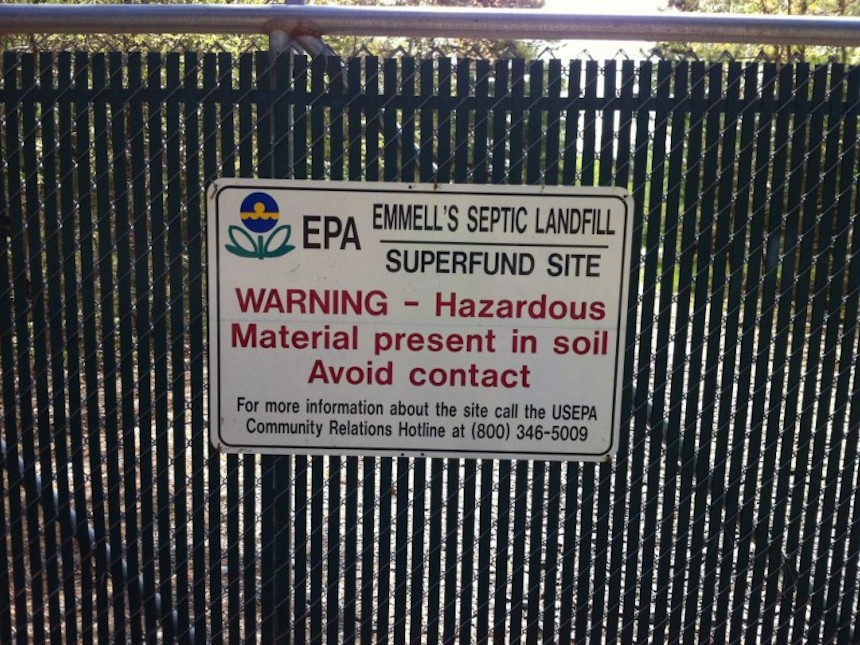 The U.S. Environmental Protection Agency has finalized its plan to install new residential drinking water wells for homes as part of the cleanup of the Emmell’s Septic Landfill Superfund site in Galloway Township, N.J. The groundwater is contaminated with volatile organic compounds. These compounds can have serious health impacts, damage the liver, impair the nervous system or increase the risk of cancer. The EPA will install approximately 14 new drinking water wells, which will draw from deeper groundwater, for residences that are impacted or threatened by groundwater contamination from the site.
The U.S. Environmental Protection Agency has finalized its plan to install new residential drinking water wells for homes as part of the cleanup of the Emmell’s Septic Landfill Superfund site in Galloway Township, N.J. The groundwater is contaminated with volatile organic compounds. These compounds can have serious health impacts, damage the liver, impair the nervous system or increase the risk of cancer. The EPA will install approximately 14 new drinking water wells, which will draw from deeper groundwater, for residences that are impacted or threatened by groundwater contamination from the site.
“EPA is on the job and we will work to ensure that these residences have a permanent supply of clean drinking water,” said Catherine McCabe, Acting Regional Administrator. “By finalizing this plan, EPA can now address the threat posed by the contaminated groundwater at this site.”
The Emmell’s Septic Landfill operated from 1967 to 1979. The site was formerly used to dispose of septic waste and sewage sludge that reportedly had been put into trenches and lagoons on the property. Chemical waste was also illegally disposed of at the site. In 1999 and 2000, the EPA excavated and removed hundreds of drums, 11 compressed gas cylinders and approximately 28,000 cubic yards of contaminated soil from the site.
The EPA’s record of decision amendment modifies a 2008 cleanup plan, which provided for the extraction and treatment of contaminated groundwater at the site. That extraction and treatment of contaminated groundwater is ongoing, and is expected to continue. Since then, the EPA determined that residential wells have been impacted or are at risk from site-related groundwater contamination. The deeper replacement wells will be drilled to a depth of approximately 350 feet where groundwater is clean, and impacted or threatened wells will be taken out of service.
The EPA will monitor the groundwater over the long term, to ensure the effectiveness of the cleanup. The EPA estimates the cost of installing the new wells will be about $1 million.

